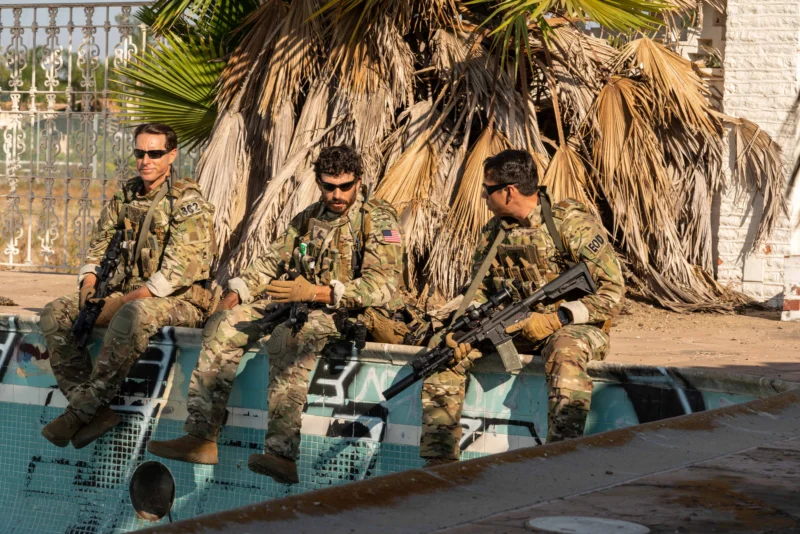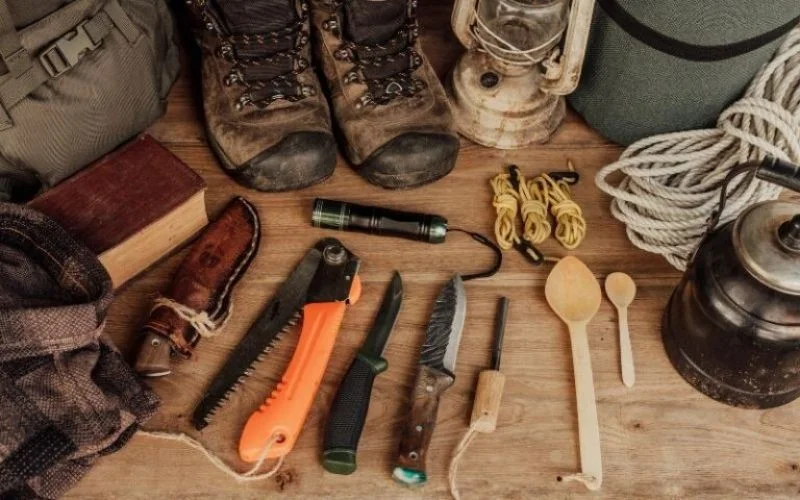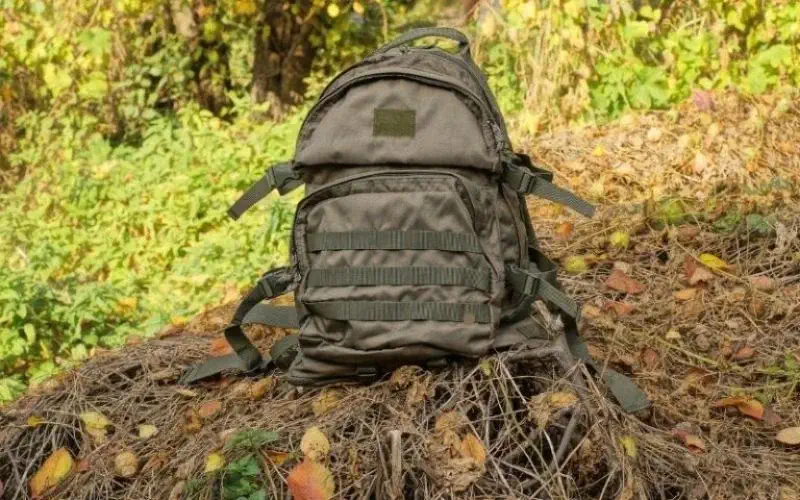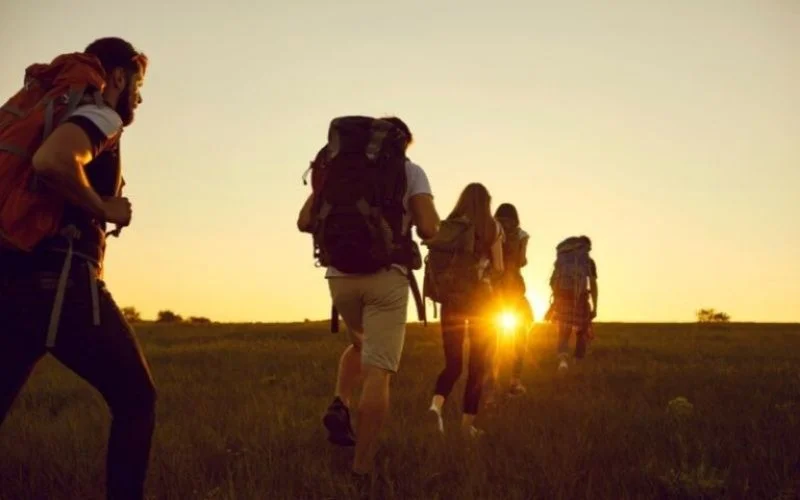Comparing Lightweight vs. Heavy-Duty Camping Gear

When the call of the wild sounds loud, every camper must make one important choice before they begin: do you go light or heavy with gear? Deciding between light and heavy equipment camping can make a big difference in your comfort, movement, and overall camping experience. Traveling lightweight and fast is ideal for some, while others prefer maximum protection and durability. The appropriate decision depends on your destination, trip duration, and camping style.
How Does Gear Weight Affect Your Camping Experience?

The weight of your equipment directly affects your energy, speed, and stamina on outdoor excursions. Lightweight configurations enable you to travel faster, cover greater distances, and save energy, perfect for organizing camping equipment and individual expeditions. Heavy-duty equipment provides greater stability, comfort, and security, but tends to slow you down. Finding a balance between ease and ability oftentimes determines how much fun your trip is.
Lightweight vs. Heavy-Duty Camping Equipment

Choosing between lightweight and heavy-duty gear isn’t simply about carrying less or more; it’s about aligning your equipment with your goals. Below, we’ll break down the differences and benefits across several key camping essentials.
1. Tents: Portability vs. Protection
A light tent generally weighs less than 3 pounds and consists of thin nylon or polyester fabric. Such tents are ideal for backpackers who want mobility and easy setup. Yet they provide minimal insulation and can easily be blown over by heavy rain or high winds.
A sturdy tent, usually made of canvas or dense ripstop nylon, offers greater weather protection and room. It’s great for car campers or multi-family outings where comfort is more important than mobility.
2. Sleeping Bags: Compressed Coziness vs. Hardcore Insulation
Lightweight sleeping bags are suitable for hikers and mountaineers who prioritize packability. They incorporate high-fill-power down or synthetic fill to be warm while remaining lightweight. They are ideal for summer or temperate-weather camping.
Heavy-duty sleeping bags, by contrast, are larger and provide more warmth, insulation, and moisture resistance, making them ideal for cold-weather or high-altitude adventures. Though they take up more space, they provide comfort and safety in subfreezing temperatures.
3. Backpacks: Efficiency vs. Load Capacity
A lightweight backpack emphasizes minimalism, fewer compartments, thinner straps, and ultralight material. Such a design promotes effective packing and is ideal for short trips or fastpacking excursions.
On the other hand, heavy backpacks feature stiffened frames, multiple storage compartments, and cushioned padding to support heavier loads. They are evenly distributed, making them convenient for extended hikes or bulky gear such as cooking sets or tents. The extra support makes them dependable but heavier.
4. Cookware: Simplicity vs. Versatility
Lightweight cookware, such as titanium or aluminum sets, is ideal for minimalist campers who enjoy one-pot meals and ease of cleanup. It’s effective but not versatile in cooking.
Heavy-duty cookware, usually stainless steel or cast iron, delivers even heat distribution and is ideal for preparing complex dishes. While heavier to transport, it’s the best option for overlanding, family camping, or base camps with gourmet meals.
5. Footwear: Agility vs. Endurance
Lightweight trail runners or hiking shoes are great for quick travel along smooth trails. They drain quickly and minimize fatigue, but might not be strong enough on rugged surfaces.
Heavier boots offer better ankle support, thicker soles, and waterproofing, great for rocky, muddy, or very long hikes. The negative is the weight, which makes them slower on easier routes.
6. Clothing: Breathability vs. Toughness
Lightweight clothing employs quick-drying materials and packable constructions, ideal for hot climates and layering. But they’ll degrade more quickly in harsh conditions.
Heavy-duty clothing, such as canvas jackets or abrasion-resistant pants, emphasizes strength and protection against abrasion, cold, and moisture. While heavier, they’re not worth avoiding in extreme conditions or long journeys.
7. Tools and Accessories: Less-is-More Gear vs. One-Piece Equipment
Ultralight campers tend to favor multi-tools and highly compressed gear, such as inflatable pillows, collapsible stoves, or solar lanterns. Ounces are precious, and versatility is important.
In contrast, heavy-duty bases can be equipped with full-size axes, large coolers, or solid lanterns designed to withstand harsh conditions. They provide dependability and functionality for extended periods or group outings.
When to Use Lightweight Camping Gear?

- When you’re backpacking or hiking long distances
- When you want to minimize fatigue and maximize mobility
- When you’re camping in mild or predictable weather
- When you prefer quick setups and compact packing
When to Choose Heavy-Duty Camping Gear?
- When you’re car camping or staying at a base camp
- When you expect cold, wet, or windy conditions
- When you need reliable, long-term gear for multiple seasons
- When you prioritize comfort and space over speed
Conclusion
Whether you pack lightly or heavily, the spirit of camping is about preparation and comfort. Lightweight equipment lets you move freely and efficiently, while heavy-duty equipment provides strength and security in tough conditions. The correct choice finds balance between freedom and functionality, allowing you to appreciate every dawn, campfire, and night sky with confidence.
Frequently Asked Questions
Is lightweight camping equipment strong enough for extended journeys?
Yes, lightweight gear now employs sophisticated materials such as ripstop nylon and titanium, providing durability for prolonged use when well-maintained.
Can I intermix lightweight and heavy-duty camping gear?
Absolutely, most campers intermix both lightweight tents with heavy-duty cookware or hiking shoes to provide comfort without excess weight.
Is heavy-duty camping gear worth the additional cost?
Yes, particularly for frequent use or harsh conditions. Heavy-duty equipment usually lasts much longer, so it’s a smart long-term investment.
What is best for beginners: lightweight or heavy-duty camping equipment?
Beginners usually start with heavy-duty equipment for comfort and longevity, then gradually transition to lighter gear as they gain experience.
How do I minimize pack weight without sacrificing safety?
Select multipurpose equipment, carry only essentials, and use compressible or collapsible gear to keep the load manageable.
